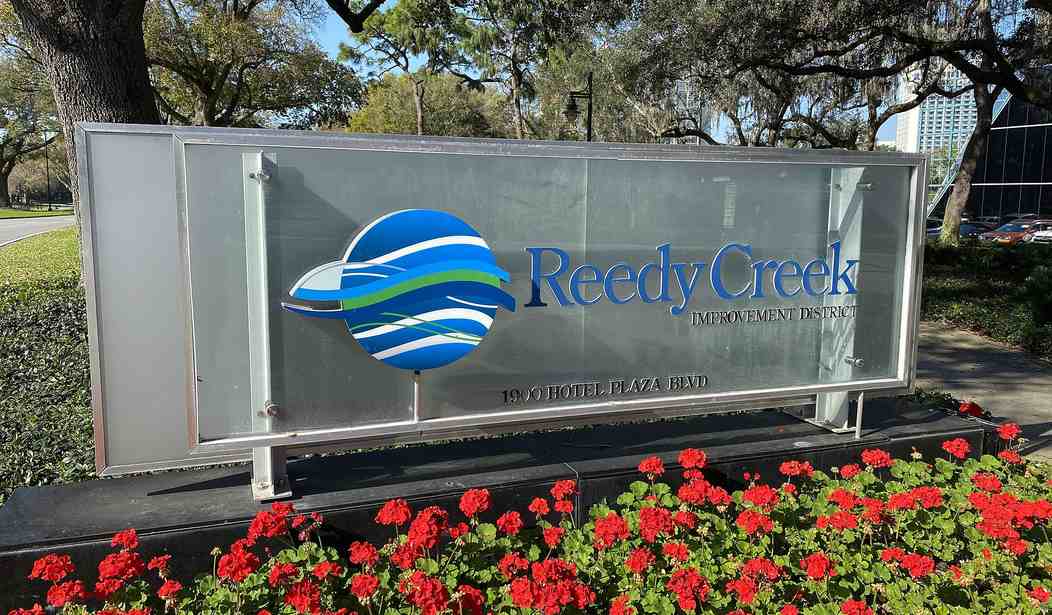Last year, Gov. Ron DeSantis (R-Fla.) and the Florida legislature responded to Disney’s speaking out against the state’s Parental Rights in Education law — which the left falsely saddled with the moniker “Don’t Say Gay” — by discussing the idea of doing away with Disney’s special self-governing status, the Reedy Creek Improvement District (RCID).
The legislature created the RCID in 1967, and it served its purpose well at a time when Disney was developing what would become Walt Disney World, allowing the company to develop innovative infrastructure and create and test new technologies that allowed the resort to come to fruition.
In my book Neon Crosses, I explained how the district came about:
Before Walt [Disney] died, the legal team discovered a somewhat obscure Florida law that allowed for the creation of special improvement districts with a different form of governance than a traditional municipality. Bob Foster convinced Walt that petitioning the state legislature to allow Disney to govern its own property under that law was the way to go. An improvement district would grant the company exemptions from local building codes and would allow Disney to create its own first response and telecommunications services.
All of Disney’s political meddling notwithstanding, the RCID has run its course of usefulness, and the company is taking advantage of loads of special privileges that the state has afforded it. But that time may be coming to an end soon.
Last week, the state legislature convened a special session to discuss the RCID and some other issues, and the Sunshine State is now looking to end Disney’s self-governing status, along with making some other big changes.
“Firstly, the State of Florida will be able to tax Disney for road programs just outside its boundaries,” reports the Floridian. “Second, the company will have to pay nearly $1 billion in unsecured debt. Third, State law will no longer give Disney preferential treatment. Fourth, “an avenue” will be made to compel Disney to contribute to local infrastructure.”
Related: Bob Iger Expresses Regret for Disney’s Political Tangle With Florida
The RCID would take on a new name: the Central Florida Tourism Oversight District, and instead of Disney appointing its board members, the governor would manage the appointments, with the approval of the state Senate.
WESH reports that the new district would “have to report budget and finances to the state, would be restricted from building airports, stadiums and civic centers, and there could be no expansion of Disney boundaries without state approval.”
“There would also be no spending of public money on attractions advertising,” the report adds. “But the district would retain power over planning, zoning, building, and safety codes, and retain current tax-exempt status for property and bonds.”
“The corporate kingdom has come to an end,” Desantis’ Communications Director Taryn Fenske said. “Under the proposed legislation, Disney will no longer control its own government, will live under the same laws as everyone else, will be responsible for their outstanding debts, and will pay their fair share of taxes.”
Naturally, Democrats are up in arms over the proposal. Rep. Anna Eskamani (D-42nd district) calls it a “power grab by the Governor” without having read the bill itself.
Reedy Creek bill just dropped; it's 189 pages long and I'm still reading it but it's a clear power grab by the Governor. He gets to appoint all FIVE board members.
Read the bill here: https://t.co/VZvcKpFgJP pic.twitter.com/ho0RnqhCIg
— Rep. Anna V. Eskamani 🔨 (@AnnaForFlorida) February 6, 2023
State Sen. Linda Stewart (D-17th district) says that the new legislation is an unwelcome sign of government intruding in business, which may be the first time in history a Democrat has said such a thing.
The legislature could pass the new bill as soon as this Friday, and they may work out even more details in the regular legislative session, which starts March 7. No matter what happens, it looks like Disney’s special gravy train from the state of Florida has now come to the end of the line.










Join the conversation as a VIP Member